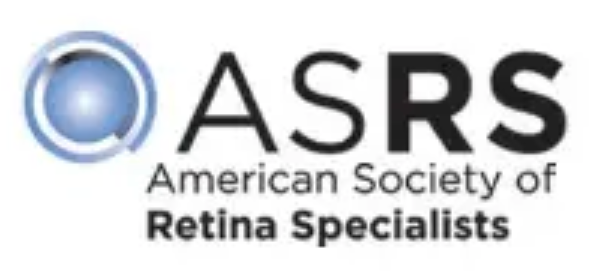Aviation Exams
What are Aviation Exams?
Aviation exams refer to the medical assessments and evaluations that individuals aspiring to become pilots or other aviation professionals must undergo. These exams are designed to ensure that candidates meet specific health and medical standards necessary to safely operate aircraft and perform their duties in the aviation industry.
The aviation medical examiners (AMEs) who conduct these assessments assess an individual's physical and mental health, including factors that could impact their ability to fly safely.

Who is Suitable for Aviation Exams?
Aviation exams are typically required for individuals who aspire to become pilots or work in aviation-related roles. The specific suitability criteria depend on the type of aviation activity and the regulatory authority overseeing aviation in a particular jurisdiction. Generally, individuals in good physical and mental health, without significant medical conditions that could impair their ability to operate aircraft safely, are suitable for aviation exams. This includes individuals who meet specific vision, hearing, cardiovascular, neurological, and mental health standards.
Benefits of Aviation Exams
Aviation exams offer several benefits to both individuals seeking aviation careers and the aviation industry as a whole:
- Safety: Aviation exams ensure that individuals operating aircraft are in good health, minimising the risks associated with medical conditions that could compromise flight safety.
- Performance: Individuals who pass aviation exams are more likely to perform optimally, as they meet the necessary physical and mental standards for aviation tasks.
- Legal and Regulatory Compliance: Many aviation regulatory authorities mandate medical certification for pilots and aviation professionals. Passing aviation exams helps individuals comply with these requirements.
- Early Detection: Aviation exams can identify health issues early, allowing individuals to receive treatment before conditions worsen.
- Public Confidence: The public has greater confidence in air travel safety when they know that pilots and crew members undergo rigorous medical assessments.
- Industry Reputation: A strong focus on medical fitness enhances the aviation industry's reputation for safety and professionalism.
Types of Aviation Exams
There are several types of aviation exams, each tailored to the specific needs and roles within the aviation industry. The following are common types of aviation exams:
- Class 1 Medical Exam: This is the most comprehensive medical exam required for commercial airline transport pilots. It includes detailed assessments of various health aspects, including vision, hearing, cardiovascular, neurological, and mental health.
- Class 2 Medical Exam: This exam is typically required for commercial pilots flying non-airline aircraft, such as charter flights. It is less comprehensive than a Class 1 exam but assesses similar health aspects.
- Class 3 Medical Exam: This exam is often required for private or recreational pilots. It assesses basic health parameters to ensure pilots can safely operate private aircraft.
- Air Traffic Controller Medical Exam: Air traffic controllers are responsible for safely coordinating aircraft in the airspace. Their medical exam focuses on conditions that could impact their ability to perform high-pressure tasks effectively.
- Flight Dispatcher Medical Exam: Flight dispatchers are crucial in planning and coordinating flights. Their medical exam ensures they are fit to perform their duties, which involve strategic decision-making.
- Cabin Crew Medical Exam: Cabin crew members need to be physically and mentally fit to ensure the safety and well-being of passengers during flights.
What to do Before an Aviation Exams?
Before undergoing an aviation exam, it's important to prepare by taking certain steps:
- Review Requirements: Familiarise yourself with the specific medical standards and requirements set by the aviation regulatory authority in your jurisdiction. Different aviation roles have different medical certification classes, each with its criteria.
- Gather Medical History: Compile a detailed medical history, including any previous illnesses, surgeries, medications, and existing medical conditions. This information will be required during the examination.
- Documentation: Bring relevant documents, such as your identification, pilot's licence (if applicable), medical history records, and any medical clearance documentation if you have a pre-existing medical condition.
- Rest and Hydration: Get enough rest the night before the exam and stay hydrated. Avoid excessive caffeine and alcohol consumption.
Aviation Exam Procedure
The aviation exam will be conducted by an AME authorised by the aviation regulatory authority to perform these assessments. The specific procedures may vary, but generally, the following will happen:
- Interview: The AME will interview you to discuss your medical history, any existing conditions, medications, and any recent medical events.
- Physical Examination: The AME will perform a thorough physical examination, including measurements of height, weight, blood pressure, and pulse. They will also examine your eyes, ears, throat, heart, lungs, and neurological reflexes.
- Vision and Hearing Tests: You will undergo vision tests to assess your visual acuity, colour vision, and depth perception. Hearing tests may also be conducted to ensure adequate hearing capabilities.
- Electrocardiogram (ECG): For higher-level medical certifications, an ECG might assess your heart's electrical activity.
- Urine and Blood Tests: In some cases, urine and blood samples might be required to test for conditions like diabetes or other metabolic disorders.
- Mental Health Assessment: The AME might ask questions about your mental health and well-being to ensure you're mentally fit for aviation duties.
What to Expect After an Aviation Exam?
After the exam, the AME will provide you with an assessment of your medical fitness for aviation duties. There are a few possible outcomes:
- Fit for Duty: If you meet all the medical standards, the AME will issue a medical certificate indicating that you're fit for aviation duties. The certificate's validity period will vary based on the medical certification class.
- Conditional Certification: If you have a medical condition that requires further evaluation or monitoring, the AME might issue a conditional medical certificate. This might involve follow-up appointments or additional medical tests.
- Disqualification: If the AME determines that you do not meet the medical standards for your desired aviation role, you might be temporarily or permanently disqualified. In some cases, you can appeal or seek further medical evaluation.
- Advice and Recommendations: The AME might advise on managing any health concerns and offer recommendations for maintaining your health and fitness for aviation.
The outcome of the aviation exam will influence your ability to pursue an aviation career or maintain your existing aviation responsibilities. If you receive a conditional certification or are disqualified, follow up with any recommended medical care and, if possible, work with your aviation regulatory authority to address any concerns and seek possible resolutions.






